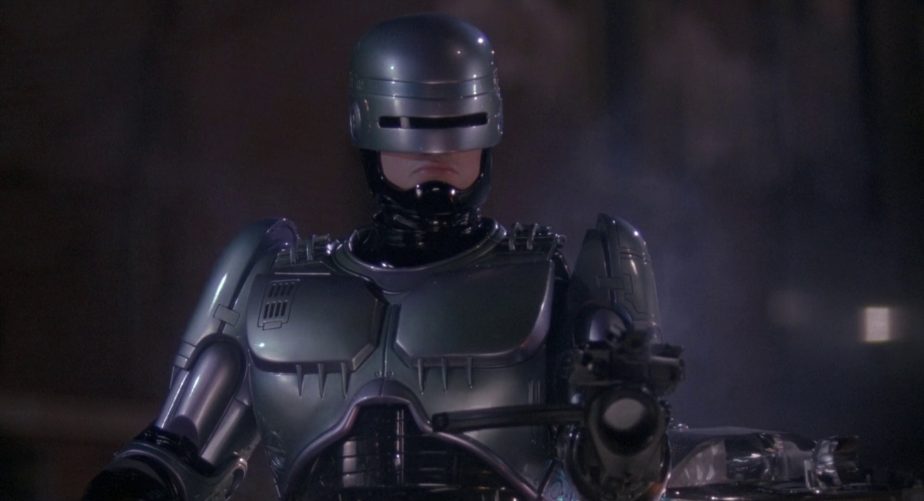RoboCop, the iconic 1987 science fiction film directed by Paul Verhoeven, tells the story of a police officer who is brutally murdered and then resurrected as a cybernetic law enforcement agent. The film explores themes of crime, corruption, and the blurred line between man and machine.

The story is set in a crime-ridden Detroit of the future, where the police department has been privatized and taken over by the ruthless conglomerate, Omni Consumer Products (OCP). In an effort to combat the rising crime rate and maintain control of the city, OCP develops a new law enforcement program that involves the creation of cyborg police officers.
One of the victims of the crime wave is police officer Alex Murphy, who is brutally killed in the line of duty. However, OCP sees an opportunity in Murphy’s death and uses his remains as the foundation for its new RoboCop program. The result is a cyborg with superhuman strength, speed, and endurance, as well as advanced sensory and communication systems.
RoboCop is initially programmed with a strict code of conduct and is tasked with enforcing the law and maintaining order in the streets of Detroit. As the story unfolds, however, it becomes clear that RoboCop is not just a machine, but a sentient being with his own thoughts and emotions. This presents a moral quandary for the scientists and executives at OCP, who begin to question whether RoboCop is truly a “machine” or a “man.”
The film is a commentary on the dangerous implications of corporate control and the ethical dilemmas that arise when technology blurs the line between human and machine. It also serves as a cautionary tale about the dangers of privatizing essential public services like law enforcement.
Despite its status as a cult classic, the film still resonates with audiences today, with its imagery and themes still relevant to contemporary discussions about crime, policing, and the role of technology in society.
In recent years, the RoboCop franchise has been rebooted, with a 2014 version, but it failed to capture the same level of success and cult following as the original. But still, the idea of having cybernetic law enforcement agents has continued to capture the imagination of science fiction fans and futurists alike, raising intriguing questions about the future of policing and the blurring of the line between human and machine.

![Beetlejuice, RoboCop & TMNT - Sears Wish Book [1990] 2 Beetlejuice, RoboCop & TMNT - Sears Wish Book [1990] 2](https://90kids.com/wp-content/uploads/2019/09/Beetlejuice-RoboCop-amp-TMNT-Sears-Wish-Book-1990.jpg)







